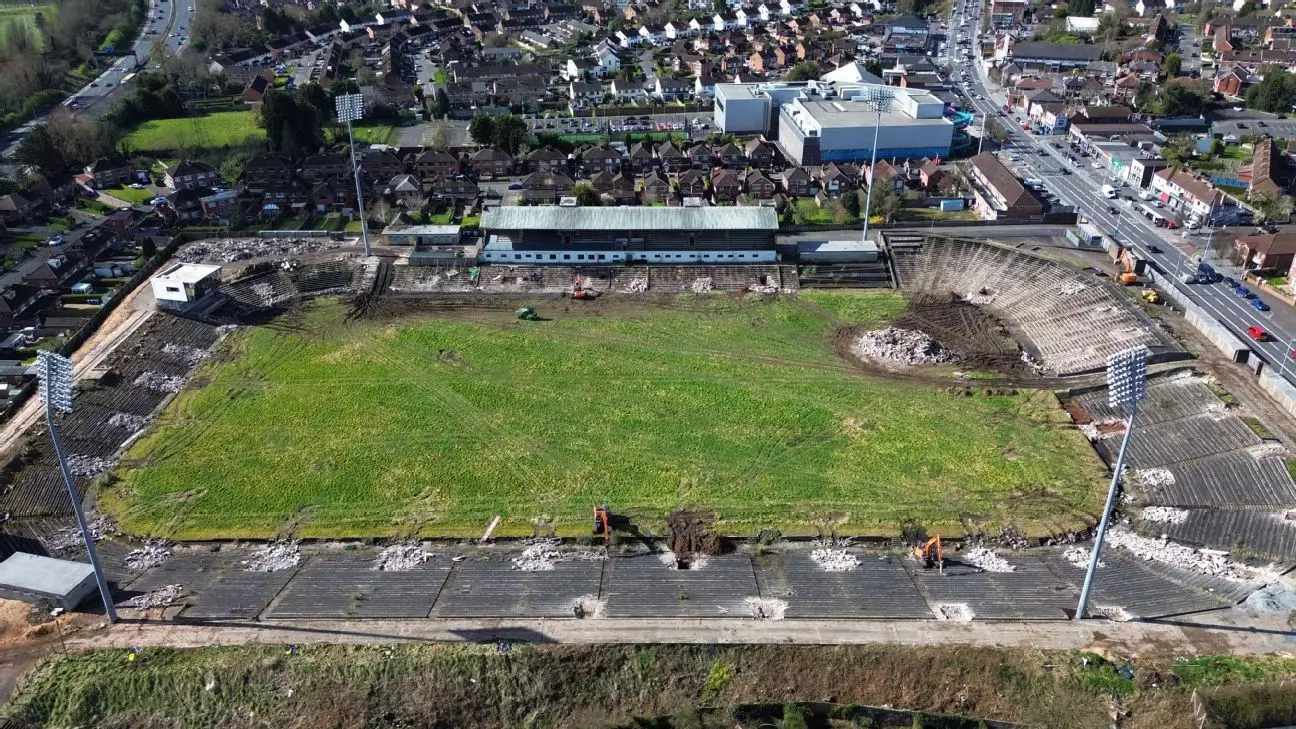Northern Ireland’s prospects of hosting matches for Euro 2028 have been severely undermined by the unexpected withdrawal of funding from the UK government for the reconstruction of Casement Park. Initially heralded as a pivotal venue for the event, Casement Park’s future is now bleak, as escalating construction costs have skyrocketed to a staggering £400 million. This abrupt decision not only undermines the aspirations of Northern Ireland to host a prestigious international tournament but also raises concerns about the government’s commitment to sports infrastructure within the region.
The journey towards Euro 2028 began with optimism as a collective UK and Ireland bid secured the hosting rights last October. This was a watershed moment, with Belfast positioned as one of the nine cities selected to feature in this landmark event. Historically, Windsor Park, home to the Northern Ireland national football team, seemed a logical choice. However, its inadequate capacity to support the tournament rules rendered it a non-viable option. Consequently, Casement Park was earmarked for redevelopment, which was seen as a chance to revitalize not only the stadium but also the surrounding community and its sports heritage.
In a joint correspondence issued by Northern Ireland Secretary Hilary Benn and UK Sports Minister Lisa Nandy, the significant escalation in projected costs was highlighted as a key reason for the withdrawal of government financial support. The staggering increase from £180 million to over £400 million within a short timeframe raises urgent questions about budget management, planning processes, and the feasibility of sports projects in Northern Ireland. This scenario has set a troubling precedent; the region’s ability to host major events may be compromised, hampering economic opportunities that accompany international sports tournaments.
With Northern Ireland now out of the picture for hosting Euro 2028 matches, UEFA will be tasked with relocating these events to other cities in England, Scotland, Wales, and the Republic of Ireland. This shift not only strips away local tourism and economic benefits but also diminishes Northern Ireland’s stature in the sporting community. The long-term repercussions could hinder future bids for international tournaments, as the message sent is clear: Northern Ireland is unprepared to meet the demands of modern sports infrastructure.
To mitigate the fallout from this decision, there must be a concerted effort among stakeholders—including local government, sports authorities, and the community—to rebuild trust. It is essential to develop a clear and sustainable plan that addresses infrastructure needs without falling prey to financial mismanagement. The dream of hosting significant sporting events is not wholly extinguished, but it will require renewed dedication and vision from all involved parties to create a viable pathway forward. Only through collaboration and strategic planning can Northern Ireland hope to reclaim its status as a worthy host for future international competitions.
